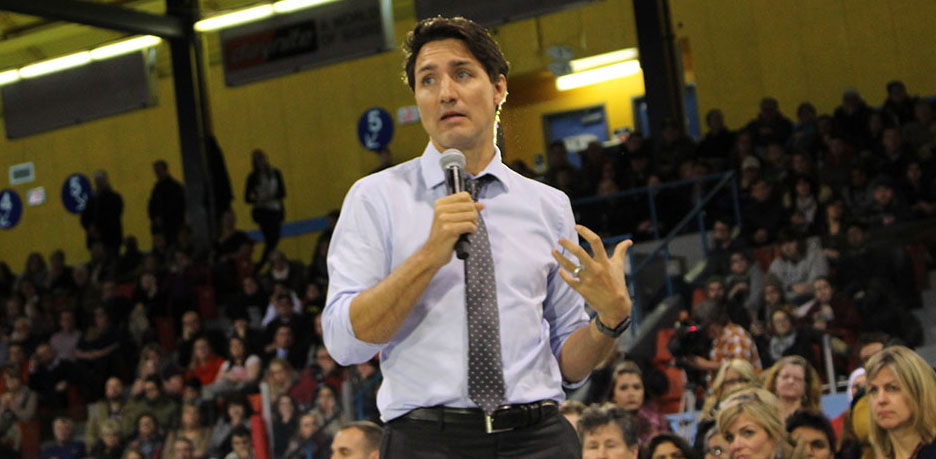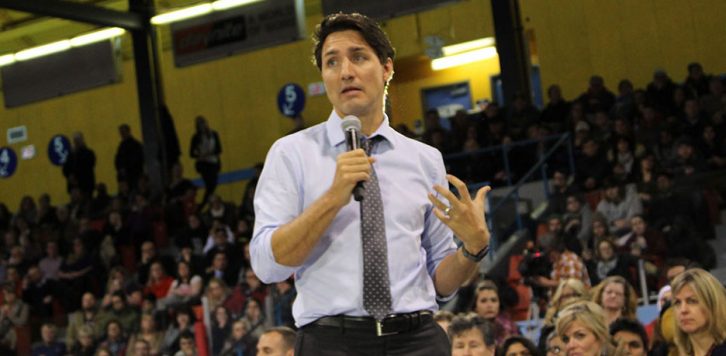Elections
No electoral reform referendum, say Liberals
Lack of support reason for broken promise

caption
Trudeau at last month's town hall in Dartmouth.
caption
Trudeau at last month’s town hall in Dartmouth.The federal Liberals won’t be introducing a referendum on electoral reform after all.
This decision goes against one of their main electoral promises from 2015.
As Prime Minister, I’ll make sure the 2015 election will be the last under first-past-the-post system http://t.co/KvaNbizLH5 #upfordebate
— Justin Trudeau (@JustinTrudeau) September 22, 2015
They say they are changing their minds because the idea lacks “clear preference,” according to a letter to Minister of Democratic Institutions Karina Gould.
Andy Blair, an advocate who runs the website FairVoteNovaScotia.com, has been very critical of the first-past-the-post voting system.
“I think the Liberals are playing with fire when it comes to breaking their election promises,” he says. “It breeds exactly the type of cynicism and anger that propelled Trump to power and caused the Brexit referendum results.”
Blair thinks thinks citizens in Atlantic Canada were misrepresented in the last federal election.
“All 32 of Atlantic Canada’s seats and all 11 of Nova Scotia’s seats are Liberal seats and obviously not 100 per cent of Nova Scotians or 100 per cent of Atlantic Canadians voted Liberal,” he says.
He also believes many Canadians strategically voted for Trudeau because he promised electoral reform.
Blair thinks Liberal insiders and pundits are banking on the fact that it isn’t the biggest issue they’re facing right now, and therefore won’t matter.
“I think they’re wrong and I think they’ll find out in the next election just how wrong they are,” he says.
Some Haligonians responded to The Signal’s request for comment through social media with support for the decision.
Reggie Cameron, 28, says Canada’s electoral system isn’t perfect, but neither are others.
“It’s worked this long,” he says, adding there’s no need to change a system that “isn’t broken, despite what a small minority of the Canadian population may try to get others to believe.”
Last year, the Liberal government set up the website MyDemocracy.ca to survey Canadian opinions on electoral reform. The results found that 67 per cent of Canadians surveyed were “somewhat or very satisfied with the way democracy works in Canada, with 32 per cent expressing general dissatisfaction.”
Manfred Ziegenhagen, who is originally from Germany but grew up in Canada, also says he supports the decision.
“Of the major models I saw floated, I think the current system is best because we elect all our MPs directly,” he says.”I’d rather have a broken promise than a bad decision.”
He compares the Canadian system to Germany’s as he’s lived in both countries.
“Of the two major alternative models I saw floated, some or all of our MPs are appointed by the parties based on the proportion of votes the parties get,” he says, adding that 50 per cent of MPs in Germany are appointed by the parties.
Such a system gives makes MPs “responsible to the parties rather than the electorate,” he says.
“I appreciate having an MP that directly represents me.”
Andy Fillmore, Halifax’s Member of Parliament, was contacted by The Signal but his office in Ottawa passed on the request for comment to the Ministry of Democratic Institutions. They have not replied as of press time.

